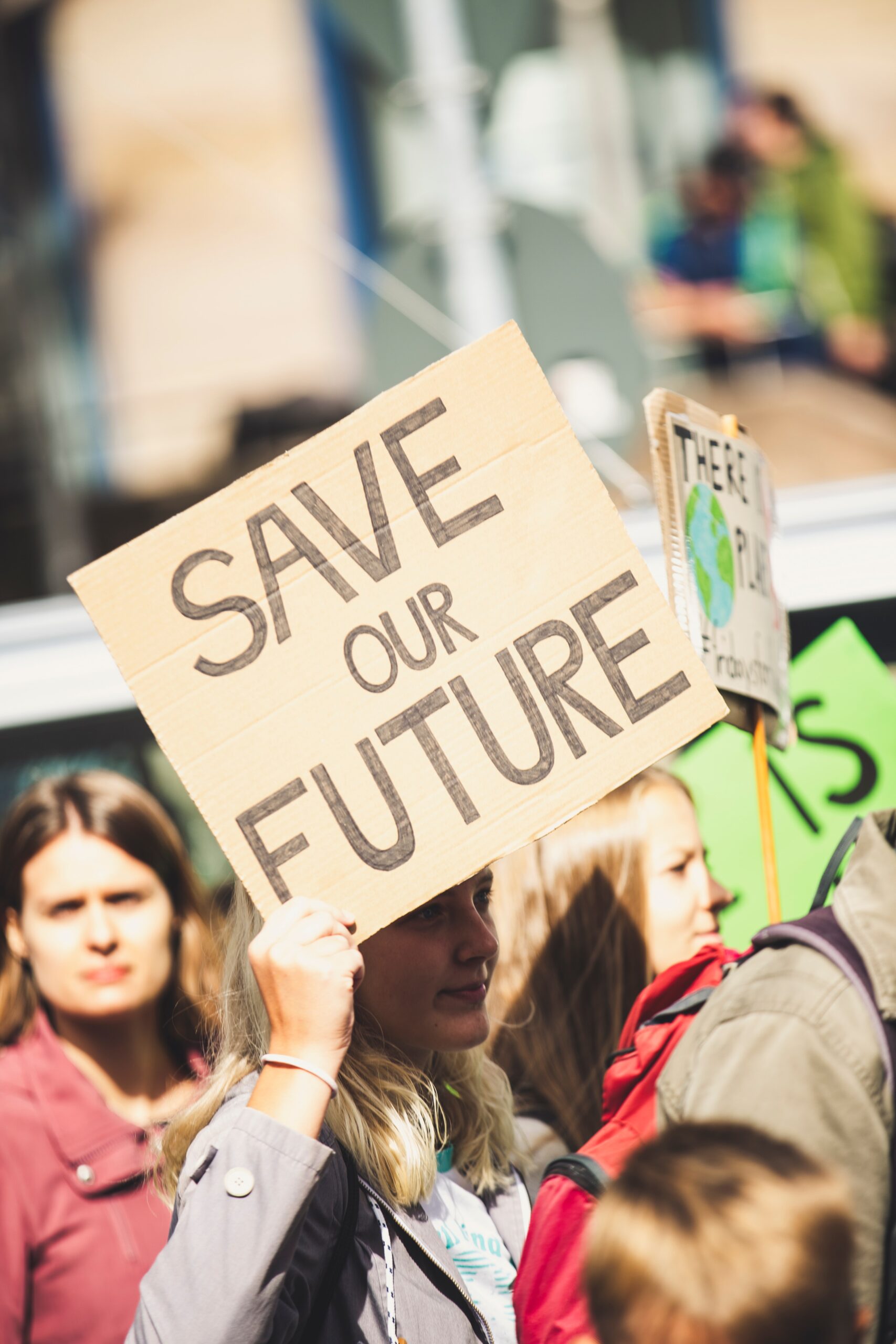
70 civil society organisations co-signed an open letter to the Deputy Minister of Finance, Theodoros Skylakakis, initiated by Common Ground and Greenpeace, outlining their priorities for a green and just recovery and seeking more public involvement in developing policies
ATHENS, 23 March 2021 – Greece, like all other member states, has until the end of April to submit a plan to the EU outlining how it will spend the €32 billion it will receive in recovery funds to overcome the effects of the pandemic. Civil society recognises this as an unprecedented opportunity for a truly just, inclusive, and sustainable transition and seeks transparency in the planning process.
So far, civil society has been largely left out of the process and kept in the dark, despite hopes that it would be inclusive and transparent. “It is vital to have full transparency for the sake of monitoring and accountability and in order to keep the citizenry informed, which is essential for the recovery” says Common Ground spokesperson, Dominika Spyratou.
Given that recent crises (economic, refugee reception, pandemic) have deepened social inequalities in Greece, the signatories contend that recovery policies should target typically overlooked populations such as impoverished households, the homeless, migrants, and refugees. At the same time, they call for policies that prioritise protecting the environment and reducing the effects of climate change in order to ensure a sustainable future and stave off future disasters and displacement.
“On the one hand, we face a pandemic, the collapse of biodiversity, the climate crisis, and increasing social inequalities. On the other hand, we have an opportunity to use the Recovery Fund to protect our health, biodiversity, the planet and to promote social justice not just to pre- pandemic levels, but to make our society stronger, healthier, and more cohesive than ever.
Threat and opportunity,” says Nikos Charalambidis, Director of Greenpeace Greece. Common Ground and the letter’s co-signers urge the Greek government to:
● Invite the public, and in particular civil society, to submit their proposals for spending the recovery funds before the government submits its final plan in April and ensure their meaningful participation in the plan’s design, implementation and monitoring.
● Prepare a detailed action plan detailing proposed programmes, objectives, beneficiaries and expected impact, which includes valid environmental, social and economic indicators.
● Improve clarity and transparency around the process, including regular information exchange sessions with stakeholders and public awareness campaigns.
Why it matters: If the above mentioned measures are implemented as part of a coordinated effort combined with other initiatives and funding opportunities to strengthen public policies, it will lead Greece out of the pandemic and toward a more just and sustainable future.
After years of austerity, the refugee reception crisis and now the pandemic, this large sum of money can enable society to turn a corner and start truly recovering from economic and social problems. To succeed, Greece must avoid repeating the policies of the past that led us to the difficult position we are in today (confronting rising inequalities, polarisation, injustice, biodiversity loss, and the climate crisis).
Notes to editors
* In July 2020, the European Union launched a €750 billion pandemic recovery fund, of which 37% is earmarked specifically for fighting climate change with the rest going toward other investments and reforms to strengthen resilience, a digital transformation, fairness, and macroeconomic stability. EU member states now have until the end of April to submit their final spending plans to account for their share of the financial aid. Greece will receive €32 billion in a combination of grants and loans.
National Recovery and Resilience Plan: Greece’s official spending plan for the recovery funds.
Read the full draft of our open letter to the Deputy Minister of Finance.
About Common Ground
Common Ground is a new platform for strengthening strategic cooperation among civil society in Greece. From greening the economy to reducing inequalities to safeguarding human rights, Common Ground seeks to accelerate change through joint action.
Follow Common Ground on Twitter and Facebook and Instagram and LinkedIn.
For more information please contact:
Dominika Spyratou, Common Ground, Athens, Tel: +30 6977868655,
dominika@commongroundgreece.org
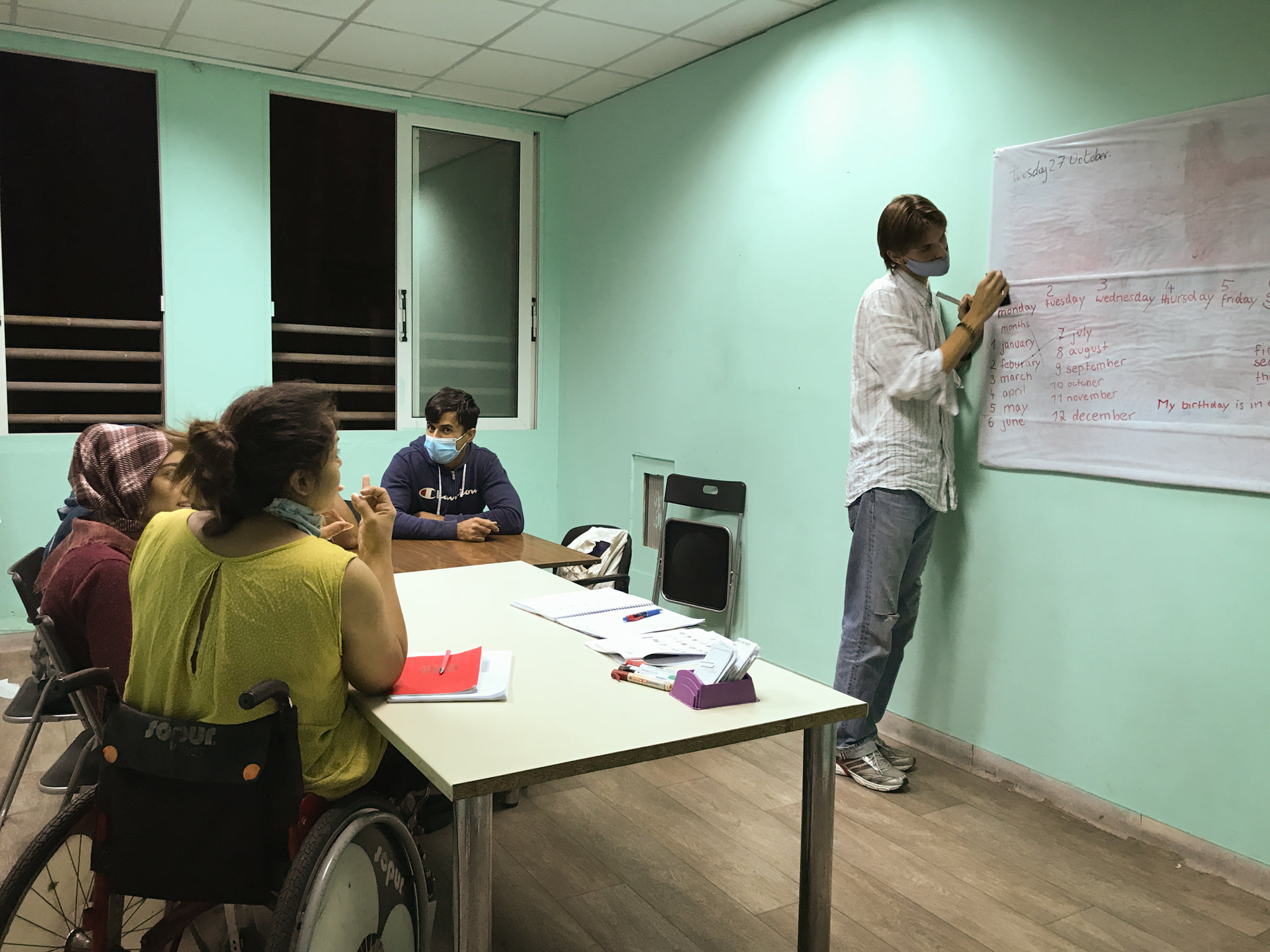
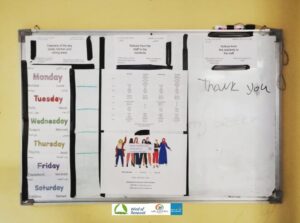
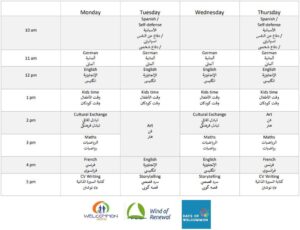 Sadly after the first month the lockdown came and we had to cancel all outside classes. But we figured out a solution and had classes exclusively for the refugees – residents in the hostel, so we could keep up teaching during the lockdown. We designed a new schedule, with new classes to execute during lockdown. Unfortunately our planned classes didn`t match the sleeping schedules of the residents so we had to adapt to that. But little by little we created a kind of normality during the strangest of times.
Sadly after the first month the lockdown came and we had to cancel all outside classes. But we figured out a solution and had classes exclusively for the refugees – residents in the hostel, so we could keep up teaching during the lockdown. We designed a new schedule, with new classes to execute during lockdown. Unfortunately our planned classes didn`t match the sleeping schedules of the residents so we had to adapt to that. But little by little we created a kind of normality during the strangest of times. Right from the beginning I loved the concept behind the Welcommon Hostel. That being the unification and combination of sustainable tourism and the accommodation, empowerment and non formal education of refugees. Even though tourism collapsed after Covid, just by the volunteers and refugees living in the same building kept the spark that is the Welcommon Hostel alive.
Right from the beginning I loved the concept behind the Welcommon Hostel. That being the unification and combination of sustainable tourism and the accommodation, empowerment and non formal education of refugees. Even though tourism collapsed after Covid, just by the volunteers and refugees living in the same building kept the spark that is the Welcommon Hostel alive.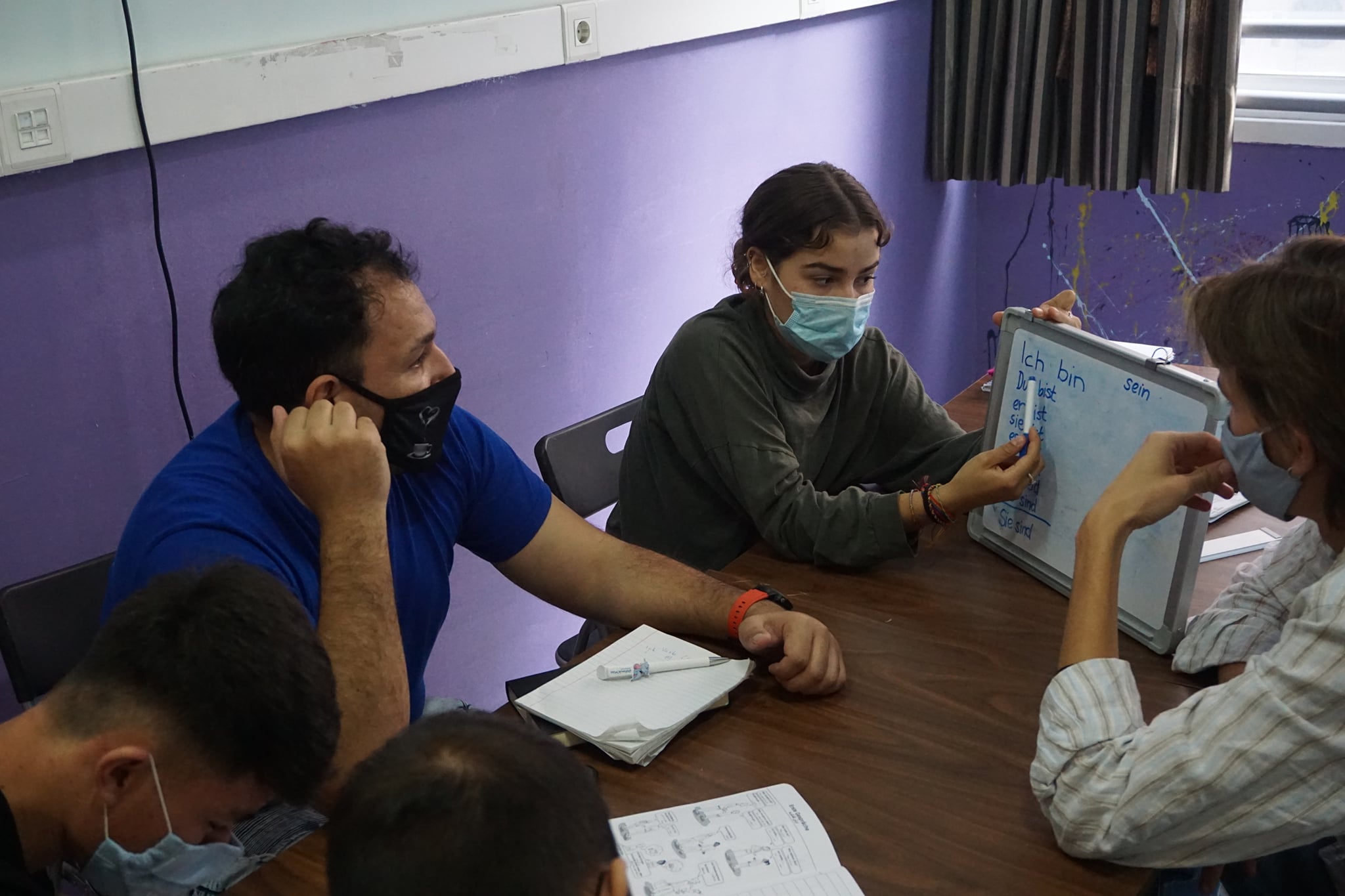
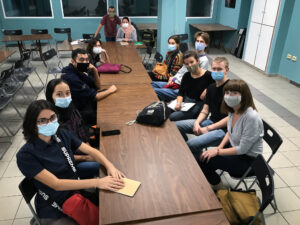 When I first arrived I knew no one and didn’t really know what to do when I entered the classroom and tried to educate my students on the german language. Luckily there were my co-volunteers and the staff of Anemos Ananeosis / Wind of Renewal, who soon turned into friends, that helped me get through this adapting period with useful tips and advice on how to be at ease and still be a good teacher.
When I first arrived I knew no one and didn’t really know what to do when I entered the classroom and tried to educate my students on the german language. Luckily there were my co-volunteers and the staff of Anemos Ananeosis / Wind of Renewal, who soon turned into friends, that helped me get through this adapting period with useful tips and advice on how to be at ease and still be a good teacher.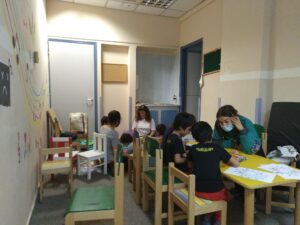 What I liked most about my time in the Welcommon Hostel as a ESC participant, was the teaching and the exchange with the students and really connecting with my co-workers and making a lot of friends in the process. Our students were so
What I liked most about my time in the Welcommon Hostel as a ESC participant, was the teaching and the exchange with the students and really connecting with my co-workers and making a lot of friends in the process. Our students were so
Recent Comments